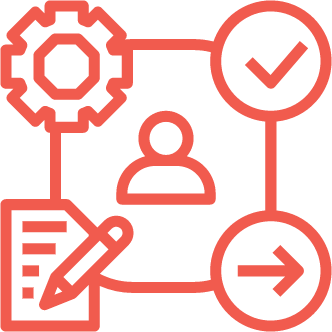Competencies, Conflict & Career Growth
How Real Work Experience Impacts Young Workers
In the paper ‘Co-op education and the impact on the behaviors and competencies of undergraduate engineering students’, Dr. Nassif E. Rayess, Dr. David Pistrui, Dr. Ron Bonnstetter, and Dr. Eric T. Gehrig used TTI Success Insights’ TriMetrix DNA assessment to gauge the effect of an internship experience on undergraduate students’ behaviors and competencies.
What is TriMetrix DNA?
The TriMetrix DNA assessment is a combination assessment that uses DISC, 12 Driving Forces, and 25 work-related Competencies. These assessments, when taken in combination, measure an individual’s behaviors, motivators, and competencies.

The Competencies assessment measures 25 different soft skills. While these 25 competencies are not the only skills that humans possess, they are the skills that are most often associated with workplace performance. As a result, it’s crucial that they be measured.

Details of the Study
The study was conducted at the University of Detroit Mercy. “The engineering curriculum at University of Detroit Mercy is designed to direct the students toward professional practice very early, requiring three co-op semesters beginning in the summer of their freshman year,” the paper says.
The study wanted to determine whether a co-op, or internship, allows students to gain on-the-job experience they couldn’t get from purely academic studies. It was a pre-post study, which means the 20 students involved took the TriMetrix DNA assessment twice: once before their internships began, and after their internships concluded. Then, their two scores were compared for changes.

An Increase in On-the-Job Skills
The research shows that “there was a marked increase in 15 of the 25 competencies (over 10%), including a very large increase (over 25%) in four competencies: conceptual thinking; decision making; futuristic thinking; and, self-starting.”
This means that the internship likely provided opportunities for students to increase their skills, which are all related to on-the-job experience.

A Decrease in Confidence
However, the aftermath of the internships wasn’t all positive; several students also showed a decrease in four competencies: appreciating others, conflict management, goal orientation; and interpersonal skills. After reviewing the reflection essays of the students involved, the researchers determined that there was a statistical correlation between the decrease of their ‘conflict management’ skill and the severity of the conflicts reported by the students during the internships.
Simply put, students who had a negative experience with their bosses, work environments, or job assignments resulted in a decrease in their ability to manage conflict.
“This finding raises the possibility that impressionable engineering students could be susceptible when faced with difficult conflicts while on co-op,” the paper explains. “Additional measures such as engaging co-op employers on the subject and monitoring the well-being of the students while on co-op are needed…There was little or no correlation between the severity of conflict and the other three decreased competencies.”
The students in the study needed additional on the job training, support and communication to succeed in their roles as interns. Not only did a negative work environment affect their experience in their internships; it also negatively affected their skills and development moving forward.
Why Does This Matter?
The fact is that some skills are earned, not learned. Academic learning can get an individual far, but the competencies gained in a real-world working environment is crucial to the career development and future success of young people.
Additionally, employers simply cannot expect their younger employees to have certain skills well developed. Some skills, like decision making and self-starting, require real-world experience and job development.

???
How to Prevent These Issues Moving Forward
Here’s what you should take away from this research.

Bad Bosses Will Affect The Development of Their Team

All It Takes to Create a Bad Working Environment is No Clarity
More alarmingly, sometimes it doesn’t even take a bad boss to cause this lack of development. All it takes is a lack of clarity and understanding. If a new team member enters a role with no expectations laid out for them by leadership, an environment full of conflict and miscommunication will follow.
The good news is that this can easily be avoided by utilizing benchmarking. This process clearly defines expectations and requirements for a role, and helps determine the skills necessary for an individual to thrive.

